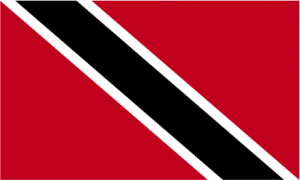
Searches
Trademarks availability searches are made according to the international nomenclature of the Nice Agreement and to National Classification of goods and services, both classifications co-exist. Such search applications may target multiclass trademarks. Device marks cannot be searched. The approximate time frame to receive results is within 5 to 7 working days.
Application
Trademark filing applications require a request to register the trademark, the name and address of the applicant, a clear representation of the trade mark and the list of the goods and/or services which the applicant seeks to register the trade mark. The application number is assigned at filing date but is not available until the TMO issues its official acknowledgment of receipt. At filing the application is not necessary to specify actual use or intent use of the mark. Priority can be claimed. An authorisation of agent must be also filed, which does not require notarization or legalisation but which must be executed on A4 size paper.
The criteria applied by the Examiner at the moment of examining the applications may be for relative or absolute causes. Likewise the application can be refused on the basis of a non-registered well-known marks owned by third parties. The objections raised against the registration of a mark may be submitted in response to a refusal of registration.
The applicable statute law used is the Trinidad and Tobago Trade Marks Act Chap 82:81, based on that of the UK legal system.
The applications are published once they have been examined in form and substance. Then the application can be subject of an opposition, which can be filed within 3 months as of the publication date of the mark. After the three-month period for filing an opposition has passed, the Registration Certificate takes from 8 to 10 months to be issued.
Registration
Granted the registration, such is valid for 10 years and there are no maintenance fees due to keep it alive. The first renewal due is 10 years from the filing date.
Cancellation
A registration can be subject to a cancellation action. After three years from the registration, the trademark can be cancelled if was registered without bona fide intention. Up to one month before the date of the application for removal a continuous period of five years or longer has elapsed during which there was no bona fide use of the registered trade mark Aggrieved persons may apply to the court or Controller to remove a trade mark from the Register for its non-use.
Nullity
Likewise, a registration can be subject of a nullity action lodged by any aggrieved person. In cases of fraudulent registration, the Controller may apply.
If a petition to remove the mark from the register is submitted, the agents by virtue of a Power of Attorney executed by the applicants can respond to the action. An application must be made to the Court, accompanied by a statement setting out the applicant’s interest, the facts upon which he bases his case and the relief sought. If the applicant is not the registered proprietor, a duplicate application must be sent to the proprietor.
The registered proprietor is given the opportunity to submit a counter-statement, and both parties shall submit such evidence they deem necessary in support of their statement. Following such, both sides will be heard and a decision delivered. This action, may be lodged , according to the Trade Marks Act, by any applicant aggrieved by any entry which: (1) not inserted on the Register, (2) omitted on the Register, (3) wrongly entered on the Register, or (4) wrongly remaining on the Register. If an action concerning the trade mark in question is pending, it must be made to the Court. In any other case, the application may be made and determined by the Controller at the TMO, or he may, refer the application to the High Court. The appeal is heard before a Judge of the High Court. There is no set time frame to obtain a decision and the matter would be subject to various factors such as applications for extensions of time, submission of evidence and availability of a hearing date.
Renewals and Assignments
Renewals are for a further period of ten (10) years and a fee is chargeable for each renewal period.
For assignment recordals, it is required an original deed of assignment which states whether it is with or without the goodwill of the Assignor’s business in the goods of the registrations. If it is a global document, it must be notarized. If the assignment is without goodwill and the marks are in use in Trinidad and Tobago, advertisement of the marks will be required. The deed of assignment does not require legalization or notarization but as it is subject to tax, a nominal consideration of $100.00 is suggested to be inserted in the document. A notarized certificate of value is also necessary when no consideration is stated.
